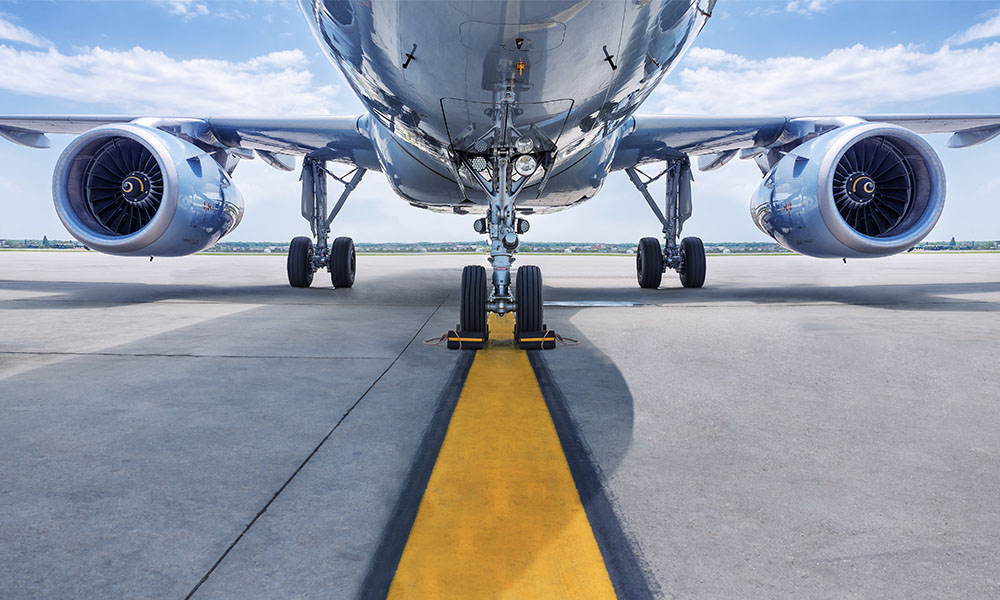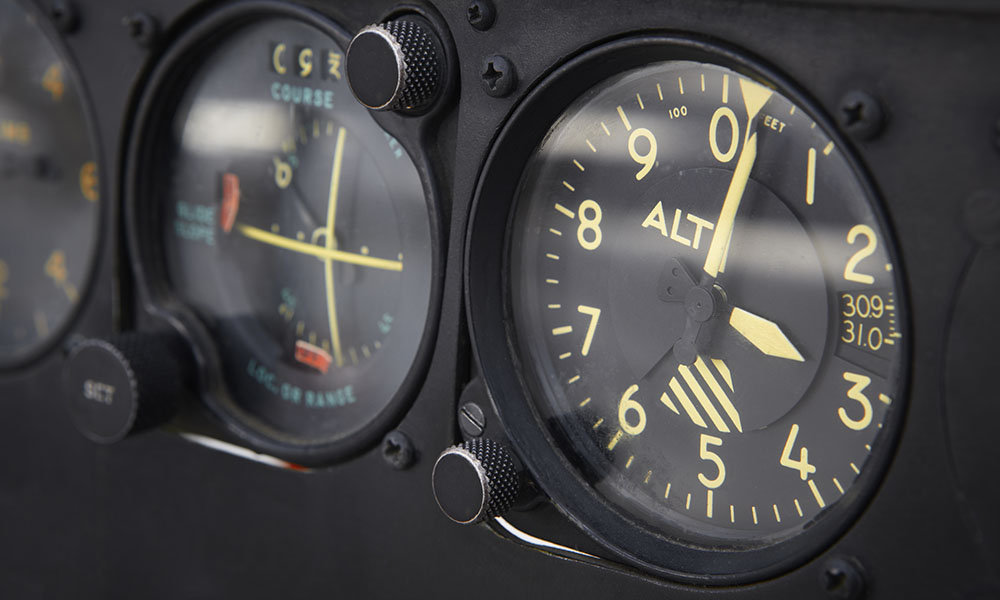The FCC’s Latest 5G Rollout Could Cause ‘Catastrophic’ Consequences to Aircraft, Industry Experts Warn
 Credit: frank_peters / Shutterstock
Credit: frank_peters / ShutterstockToggle Dark Mode
While there are no shortage of crazy conspiracy theories when it comes to new 5G wireless technology, that doesn’t mean that there aren’t some very real problems that can come with the adoption of whole new swaths of radio frequencies, and now the FCC’s latest rollout plans are causing some concern for top-level aviation officials.
A new report from Defense News reveals that a number of commercial aviation groups are asking the FCC to put the brakes on the latest spectrum auction out of fears that opening it up to 5G carriers could cause “catastrophic failures” in avionics which might even lead to collisions and “multiple fatalities.”
While this may sound like just another overreaction to new 5G technology, these concerns are being taken seriously by the head of the Federal Aviation Administration (FAA) and a top-level official at the U.S. Department of Transportation, who are jointly calling on the FCC to pause the sale of the latest chunk of 5G spectrum, at least for long enough to allow the safety concerns to be studied and addressed.
The core problem here is the FCC’s latest auction for a portion of “C-band” electromagnetic spectrum — the set of frequencies in the 3.7–3.98GHz range. While the FCC is eager to deliver this additional “mid-band” spectrum for carriers like T-Mobile to take advantage of, aviation experts say it’s far too close to the frequencies used by important pieces of aviation safety equipment such as radar altimeters.
As the name implies, radar altimeters measure the distance between the aircraft and the ground using high-bandwidth radio frequencies, generally in the spectrum just above the 4GHz range. These devices are used by pretty much all modern military, commercial, and civil aircraft — and even unmanned aerial systems and high-end drones. For obvious reasons, radar altimeters are an absolutely critical piece of equipment for aircraft operating at low altitudes.
Since the FCC’s C-band spectrum auction tops out at 3.98GHz, you might think that the frequencies used by radar altimeters is fairly safe, hovering as it does up in the 4.2-4.4GHz range, but as Interesting Engineering explains, aviation experts are concerned about something called “bandwidth pollution.”
The concept is directly analogous to “light pollution” — the phenomenon that makes it hard to see the stars in the night sky when you’re in proximity to a city, and in this case, the idea that a lot of activity occurring in one frequency range can “bleed through” into neighbouring frequencies, causing unintended interference.
In a research paper published earlier this year, the RTCA, which represents the air transportation industry, cited evidence that 5G telecommunications in the 3.7–3.98GHz portion of the spectrum could risk causing “harmful interference” to radar altimeters, however the FCC has pointedly disagreed, claiming that the 0.2GHz buffer of bandwidth in between the two spectrums is large enough to avoid any possibility of interference.
Aviation industry officials remain unconvinced, however, pointing to the fact that the FCC, which is currently chaired by net neutrality opponent and former Verizon lobbyist Ajit Pai (although not for much longer), has its own agenda to get the FCC spectrum auctioned off as quickly as possible, and while the FAA and DoT have been quietly urging the FCC to pause the spectrum auction, the Commission has stated that it has no plans to do so at this time.
Meanwhile, Defense News notes that the Pentagon has yet to take an official position on the matter, although it’s still studying the effect that it could have on military aircraft, and working with the FAA to review reports by industry groups about the risk of 5G interference with avionics. Several senior Pentagon officials and cyber experts from the FAA and Department of Homeland Security (DHS) were expected to meet earlier this week to “discuss findings and establish an interagency way ahead to validate and respond to these reports.”
At least one key manufacturer of avionics equipment, Honeywell Industries, has also been invited to the table, suggesting that the group is taking the problem seriously enough to at least consider alternatives to the present systems that may not be affected by 5G bandwidth pollution, although some experts are suggesting that if the FCC auction proceeds, the military will have to spend millions of dollars to redesign, procure, and install new radar altimeters throughout the entire fleet of airborne systems.
That’s the best case, however according to one senior government official that spoke with Defense News the worst case is “There will be accidents, property’s going to be destroyed and people are going to die.”
What This All Means
Firstly, it’s important to note that this doesn’t mean that the existing 5G implementations are being scaled back, nor are carriers even slowing down their rollouts just yet. They’ve already been cleared to use many frequencies in other spectrums, from T-Mobile’s 600MHz and 2.5GHz networks to Verizon’s ~30GHz mmWave UWB service.
The C-band auction is for new spectrum — radio frequencies that aren’t yet available to the carriers at all, and likely won’t be put into use for quite some time yet. Carriers would still have to bid on and win the licenses to use the new spectrum, and then actually start installing equipment to take advantage of it, and all of that takes time.
Similarly, while the risk to the aviation industry is potentially grave, this also means that it has some time to figure things out even if the FCC remains intransigent in its insistence on continuing with the sale of the new spectrum.
However, even that’s not really a sure thing. Even though the current chairman, Ajit Pai, has remained firm on his stance that the FCC will not slow down — even in the face of formal concerns being raised by key U.S. Senators and Congressmen that such decisions are being “made with a frightening lack of understanding of aviation requirements,” the fact is that Pai’s days at the helm of the FCC are numbered — he plans to formally resign in January, at which point it seems likely that cooler heads may prevail.







